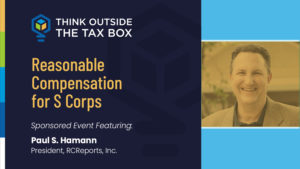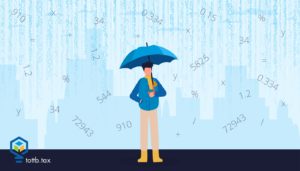
Live Event! Reasonable Compensation for S Corps Webinar
A TOTTB Live Webinar Event sponsored by our friends at RCReports! For two decades the IRS has been preparing an assault on reasonable compensation for S Corps. Their arsenal is now fully locked and loaded. In it, there is everything from commonsense tools to obscure memos. We will explore key court cases, IRS guidelines, preparer penalties and some of the obscure weapons the IRS has put in place. We debunk common myths and fiction on how reasonable compensation should be calculated and replace it with facts and methodologies that the IRS relies on.












